November 17, 2016
The Invisibility of Unregistered Children: Adama’s StoryMadoussou (53) and her grandson Adama (8) at the legal clinic in the coastal region of San Pedro in Côte d’Ivoire, West Africa. © UNICEF Côte d’Ivoire/2016/Gilliam
In Côte d’Ivoire, it is estimated that approximatively 2.8 million children from age 0 to 17 years are not registered with the civil status birth registry.
In Côte d’Ivoire, the issue of civil registration of births poses obstacles to children’s rights to education, health, protection and access to basic social services. It is estimated that approximatively 2.8 million of children from age 0 to 17 years are not registered with the civil status birth registry, of which more than 1.5 million are of school-age. The 2002 socio-political crisis created a higher disparity between urban and rural areas where only 48% of children are registered against 84% in the cities. The coastal region of San Pedro is among the less-affluent regions deeply affected by social exclusion, inequalities and poverty.
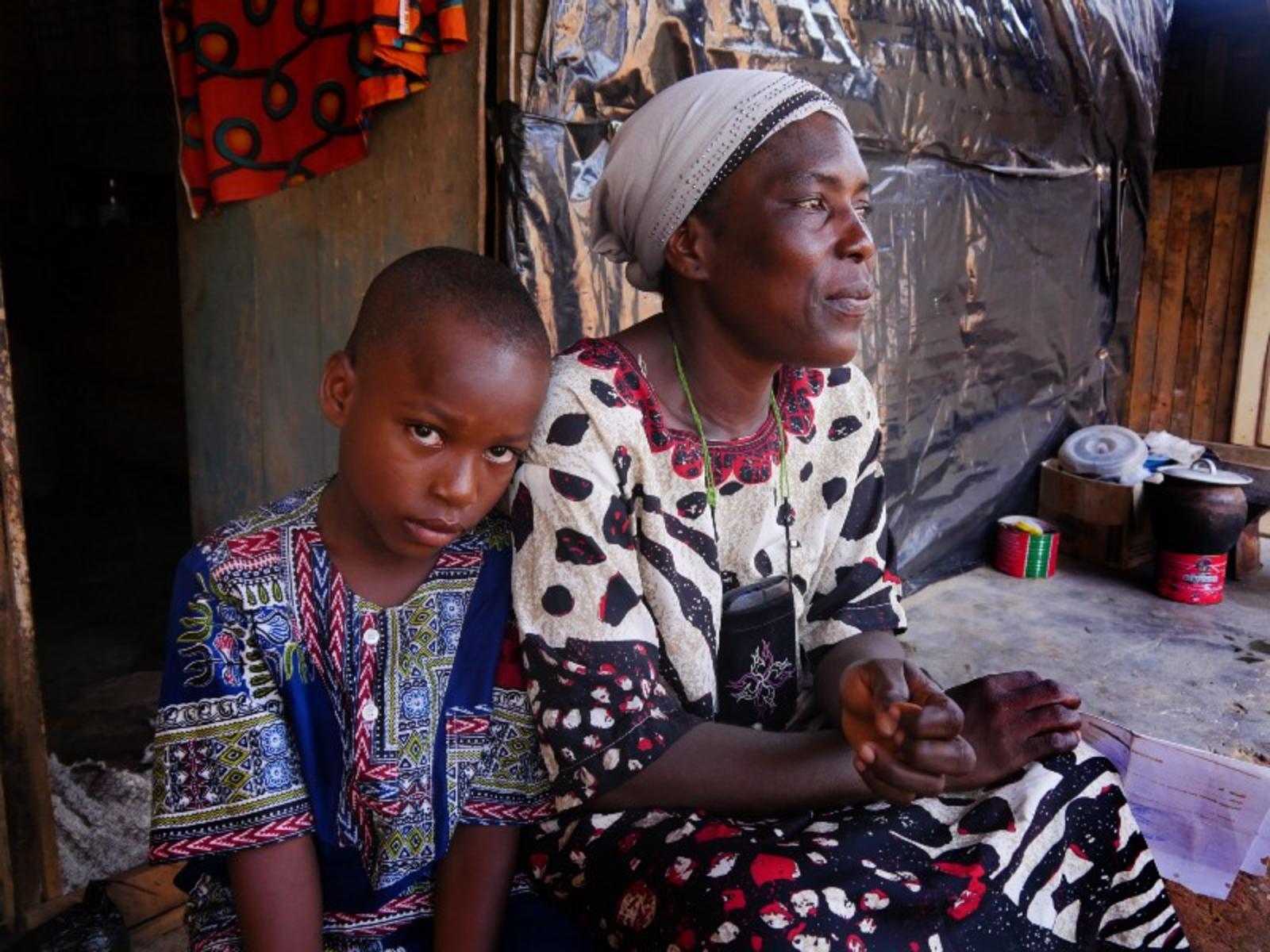
Madoussou and Adama explaining the difficulties they faced from his birth to his school entrance. © UNICEF Côte d’Ivoire/2016/Gilliam
“Throughout my daughter’s pregnancy, the father was nowhere to be found, he preferred abandoning them to their own fate. So my daughter had to fight alone to raise my grandson. Every so often, she had to engage in hazardous labour to be able to survive. The day she had to give birth, she only had 5,000 francs CFA (approximatively 7 Euros) whilst she had to undergo surgery. I found myself borrowing money from my sisters and neighbours. I turned to God because it truly felt like misfortune and sorrow had fallen on us. At that time, neither I nor my daughter were aware of the fact that we had to register the child with the civil status registry.” said Madoussou (53) as she explains the difficulties her grandson, Adama (8) had to face since birth.
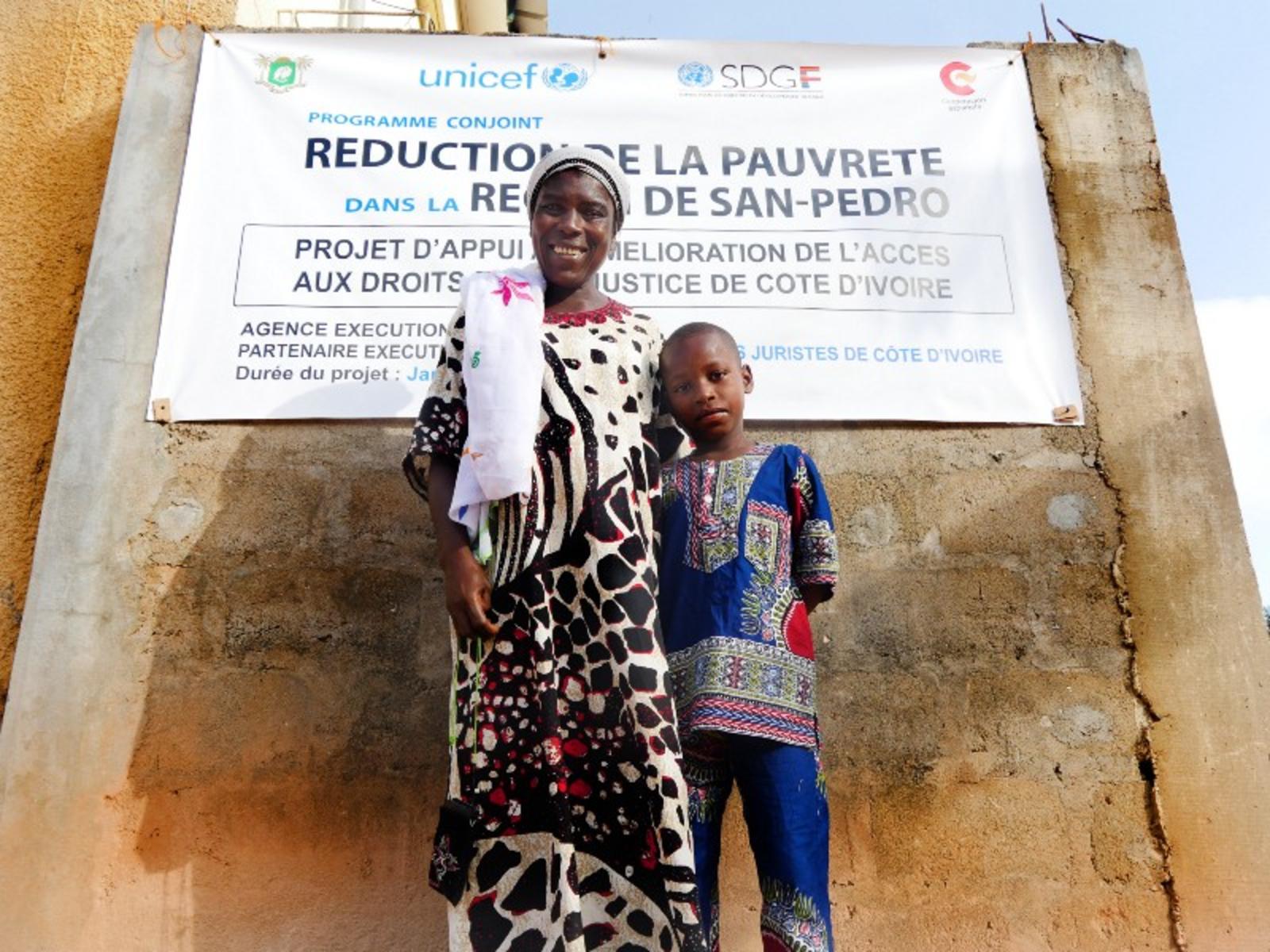
Madoussou (53) and her grandson Adama (8) at the legal clinic in the coastal region of San Pedro in Côte d’Ivoire, West Africa. © UNICEF Côte d’Ivoire/2016/Gilliam
Madoussou and her grandson Adama live in the village of Bounganou in the coastal region of San Pedro in Côte d’Ivoire where they have to spend most of their lives battling the inequalities and cycle of poverty they inherited.
“I always had to fight so that my grandson would be able to go to school and successfully complete it. Unfortunately, the school ended up rejecting his admission because he did not have a birth certificate” says Madoussou.
The support of the Sustainable Development Goals Fund; the French Agency for Development and UNICEF ensured the implementation of “Legal Clinics” and their expansion in the most vulnerable areas. The centres offer legal aid and judicial services to families, with a particular attention to children at risk of abuse, negligence, violence and exploitation. Moreover, the centres provide aid to children who were not able to be registered at the civil status registry within the legal deadlines and who were not capable of obtaining birth records.
“In our culture, for us, the Bamba clan, it is often hard to acknowledge a child without a father. It was certainly challenging for us. Our neighbours looked at us differently, we felt rejected by the community” noted Madoussou with much bitterness. “But it did not prevent us from moving forward. Legal clinics officials of San Pedro are the ones who guided and supported us. They made us aware of our rights because I don’t even know how to hold a pen.”
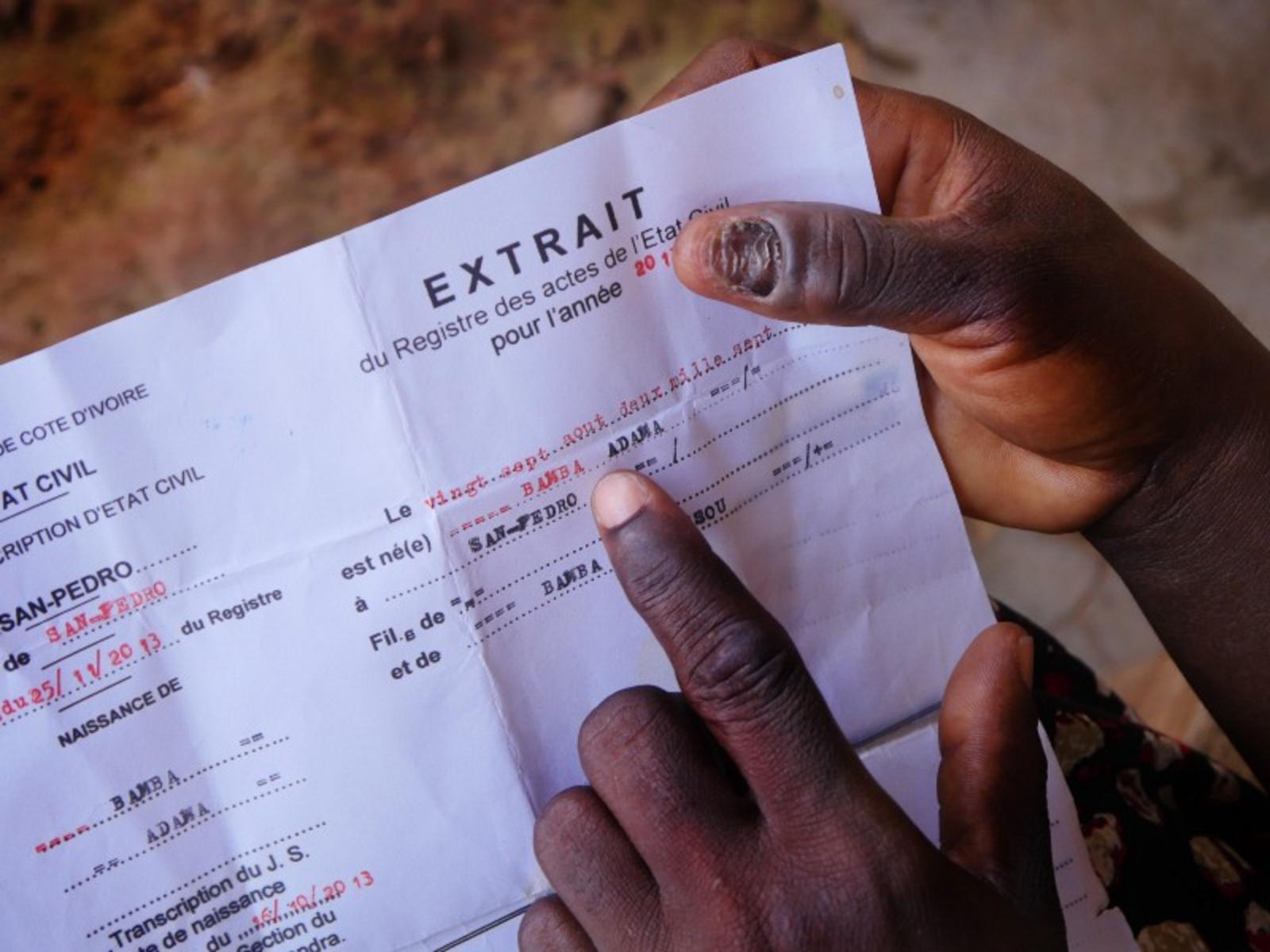
Madoussou proudly showing Adama’s birth certificate and officially announcing that her grandson is now part of the Bamba family. © UNICEF Côte d’Ivoire/2016/Gilliam
"Legal clinics' officials encouraged us to register the child at the civil status registrar. They helped us with the formalities and taught us how important this birth certificate is for the child. This certificate is the first proof of existence of the little Adama. Most importantly, it’s key to his enrolment in school. And you know, even when we go to health centres, officials always ask us for his birth certificate "narrates Madoussou.
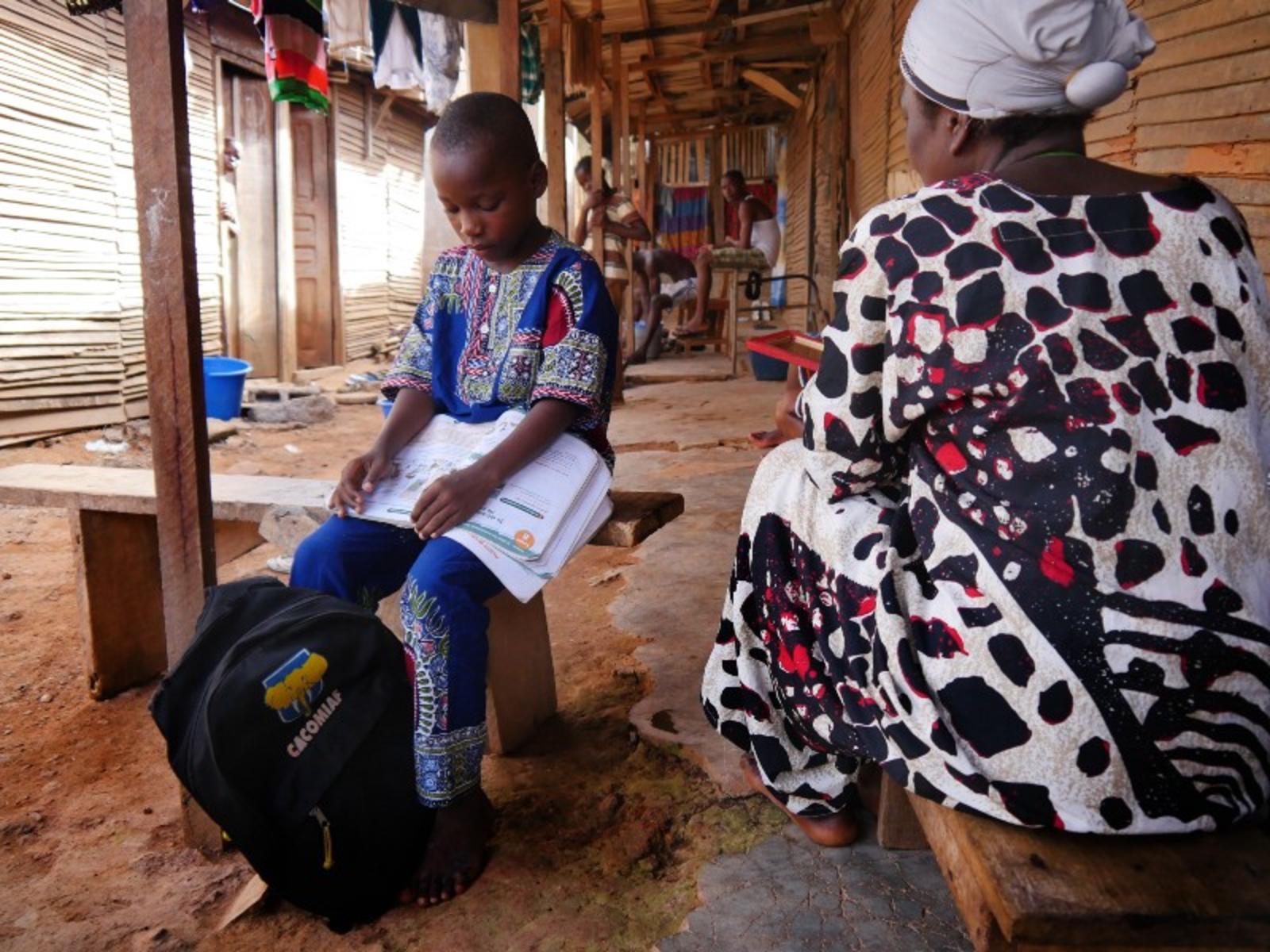
Adama is getting ready to go to school and shows his grandmother that he can now read. © UNICEF Côte d’Ivoire/2016/Gilliam
The programme supports local government efforts to address the invisibility of unregistered children. In low registering areas, communication and mobilization activities were conducted in nearly 700 localities to raise awareness about the importance of civil registration. Community-based mechanisms for notification of births within the deadline stipulated have also been implemented in nearly 470 localities. Additionally, in an effort to expand and strengthen quality of services, the programme has also provided equipment to more than 623 civil registration services in the country. These materials include not only registries but also rolling stocks and computer equipment.
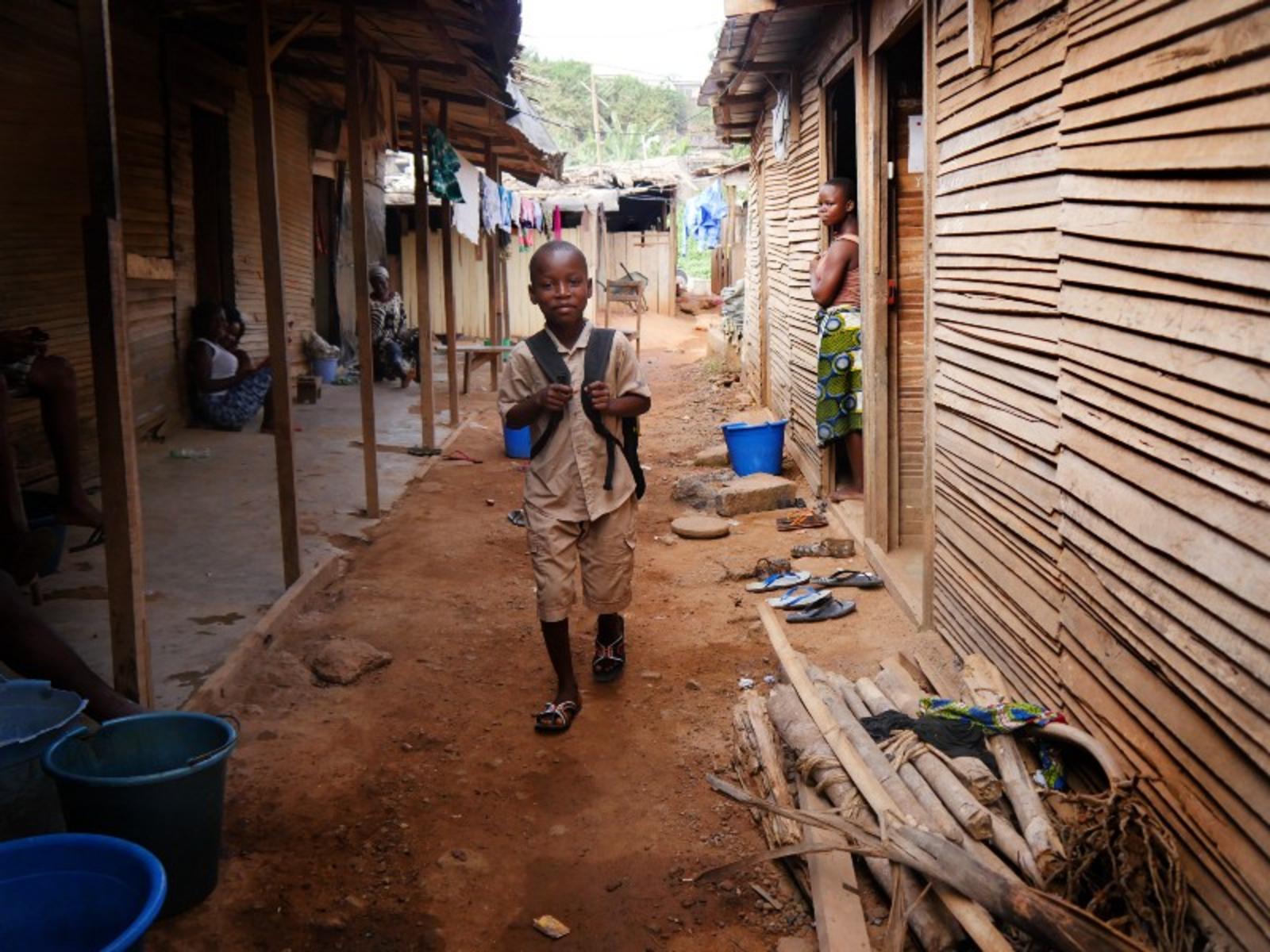
Today, thanks to his birth certificate, Adama was finally able to join the school benches. © UNICEF Côte d’Ivoire/2016/Gilliam
Thanks to his newly acquired birth certificate, Adama was finally able to join school. "Today, I am so grateful and proud of this child. He can now read and even started writing. Adama is a source of pride for the whole family. He does an excellent job at school and ranks among the best. This child will follow his dreams to the end, "said a proud Madoussou.
In Côte d'Ivoire, since 2013, nearly one million of children similar to Adama, have registered with the support of UNICEF. This program is largely funded by the Peacebuilding Fund and UNICEF France.
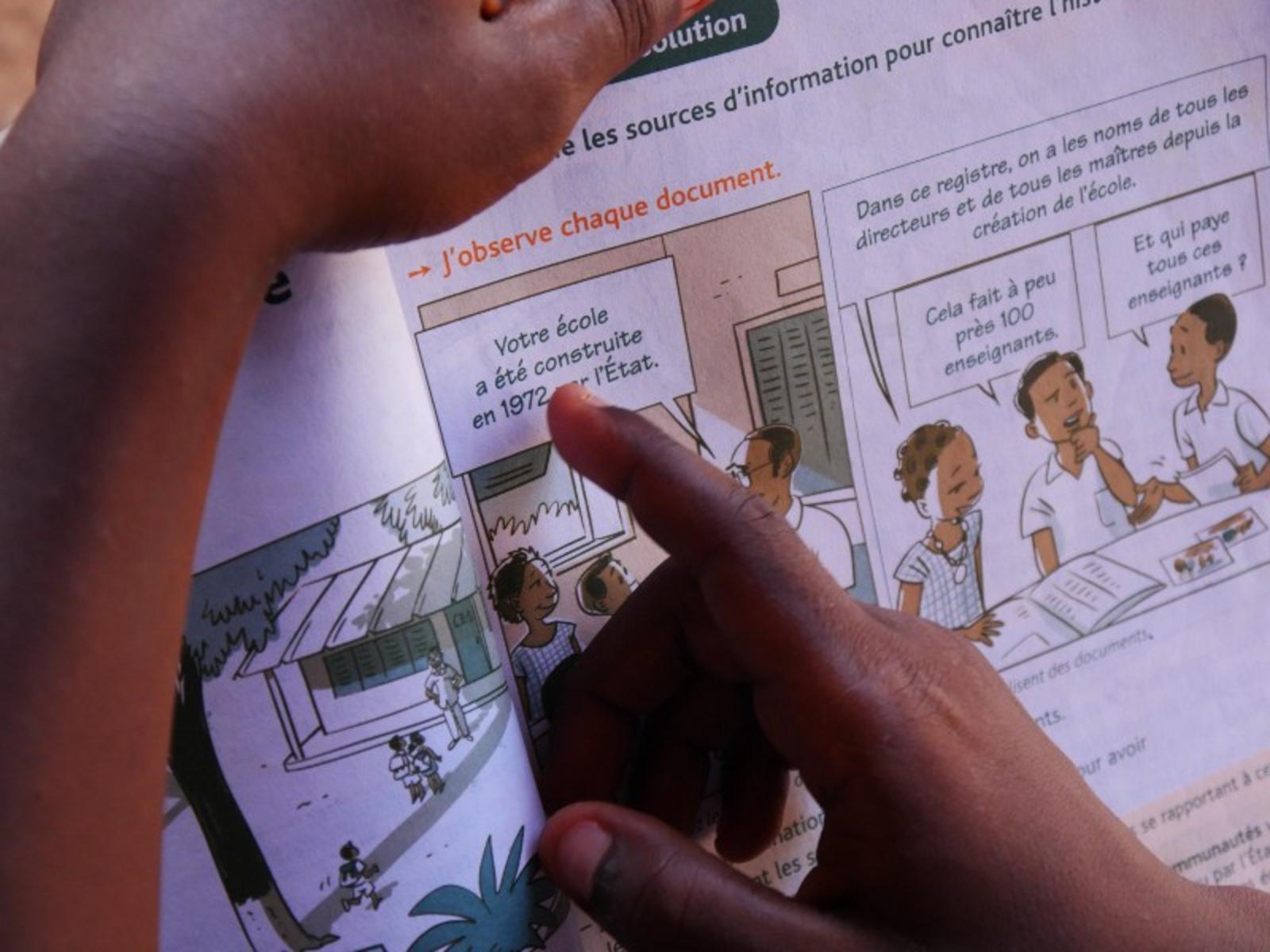
”I am now in CE1 grade (Third grade). I like history class, especially the history of the Ivorian people. When I grow up, I want to be a professional footballer like Messi,” declares Adama. © UNICEF Côte d’Ivoire/2016/Gilliam
"I am now in CE1 grade (Third grade). I like history class, especially the history of Ivorian people. When I grow up, I want to be a professional footballer like Messi,” declares Adama.
At the national level, UNICEF has maintained its advocacy approach, for the reform of civil registry in Cote d'Ivoire since 2012. Today, due to the continuous support provided by UNICEF to the Government, an overall evaluation of the civil registry system of Cote d'Ivoire has been promoted. The elaboration and adoption of a national action plan should be finalized by the end of 2016 to improve the civil registration system. The reform and the establishment of a National Population Registry are among the priorities of the national development plan for Cote d'Ivoire for the period of 2016-2020.
By Rodrigue Aye and Eva Gilliam (For UNICEF Côte d’Ivoire) - translated into English by Yah Hellene Karelle and Oumar Gadji






